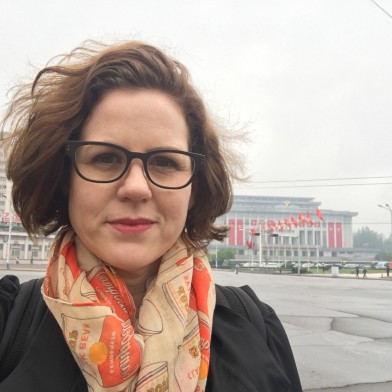Thomas Heaton is currently based in Kathmandu, Nepal, working for The Kathmandu Post as a food and travel reporter. He was previously based in Stuff's Auckland newsroom, where he reported for Cuisine magazine and Stuff's Life & Style section, with a focus on food. Before that, he started his journalism career as a reporter covering various rounds at the Manawatū Standard. Here, he shares his insights into life as a journalist in Nepal.
How long have you been in Nepal?
I have been in Nepal for just over one year, on and off. I left my job in Auckland in April 2018 to travel the world, and landed in Nepal following a serendipitous turn of events. My parents, who work for the World Food Programme in Kathmandu, were the reason I first visited. I started by contributing to the Nepali Times, and started with The Kathmandu Post in early 2019.

Thomas Heaton previously worked as a journalist for Cuisine magazine and Stuff.
What is the journalism landscape like there?
The journalism scene in Nepal is lively but the future of press freedom is looking dim. The government recently tabled a bill that would heavily infringe on journalists’ work, and did so in shady circumstances. It circumvented any public or stakeholder consultation, and its contents are a blight on the future of journalism. As part of that bill, the government would have more say in the hiring and firing of people within the country’s media council, Nepal’s New Zealand Press Council equivalent, and could impose massive fines on a largely low-waged profession. But, having said this, the media is fighting hard to maintain its freedoms. Only time will tell for Nepali journalism, but those within the profession are dogged and their resolve seems resolute.
How easy (or not) is it to make contacts?
It’s easy to make contacts, in general, but the main struggles are dealing with the elasticity of time in Nepal. While making calls, meetings and interviews is immediate in New Zealand, there’s no such luxury in Nepal. The language barrier is also a factor, but I’m trying my hand at the language.
Are there any similarities to working in New Zealand media?
There are not many similarities, so it has been a bit of a learning curve. While New Zealand is very much in a digital-first space, here the focus still seems predominantly on print. Nepal is certainly following suit, as people are now better connected with cell phones, and I’m sure there will be a strong digital focus in the near future.

Thomas spends his free time trekking in the valley of Kathmandu.
Tell us your favourite story you’ve worked on, and why?
Because my journalism is mainly based on food and travel, it’s hard to say. I’ve enjoyed everything I have written here, because each day is a learning experience. One particular story I enjoyed writing was about the culture of eating pork in Nepal. In Nepal, food and identity are inextricably linked, because, like India, Nepal has historically had a caste system. While the system dictated different ethnicities and communities’ social standing, it went so far as to dictate what people should eat. The consumption of pork was always complicated, as it was intrinsic to some castes belief systems and considered vile by others. But it is more complicated than that, because not all pigs are born equal either. The story was an interesting look at how, since the abolition of caste system, the consumption of pork has become more prevalent and become more widely acceptable to so-called “upper castes”.
What do you enjoy doing in your spare time over there?
Whenever I have enough time, I like to head out of the valley of Kathmandu. Since coming to Nepal I’ve started to love trekking, which is obviously a massive draw for most tourists that come, but the treks are more than just a weekend walk. Typically, on the Nepali one-day weekend, I like to relax and try to find hidden gems in the city. That’s essentially code for going to a local bhatti, which sells good food and local tea, rice beer or local hooch. The food in Nepal is incredibly diverse and, unfortunately, people don’t realise it.
What advice would you have for other Kiwi journalists hoping to make a career in Nepal?
For a Kiwi journalist wanting to come and work in Nepal, it’s a tough ask. As I said earlier, it was rather serendipitous that I managed to get work here. That’s because of the high cost for media houses to get visas for foreigners. I would recommend people come, check the country out, perhaps do some stories for outlets at home and see how they like the place. Make some contacts, meet some editors, and try your luck.
Main image via Pixabay.
- Asia Media Centre

